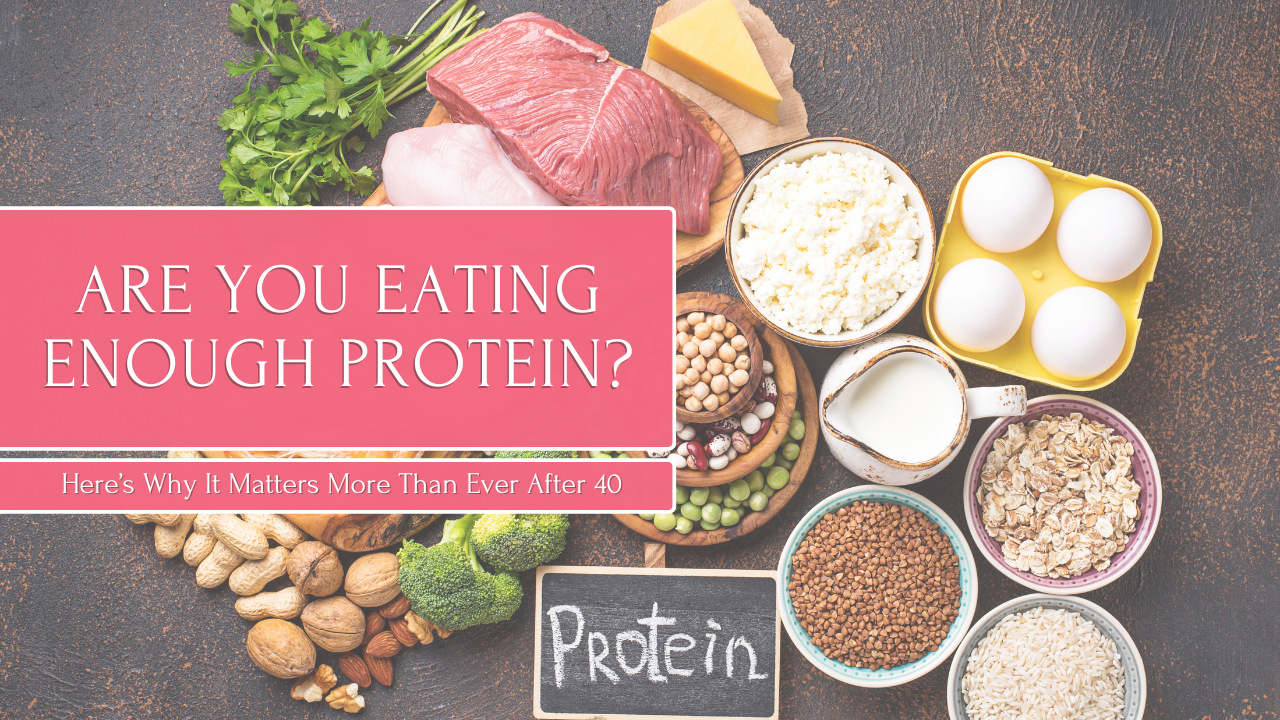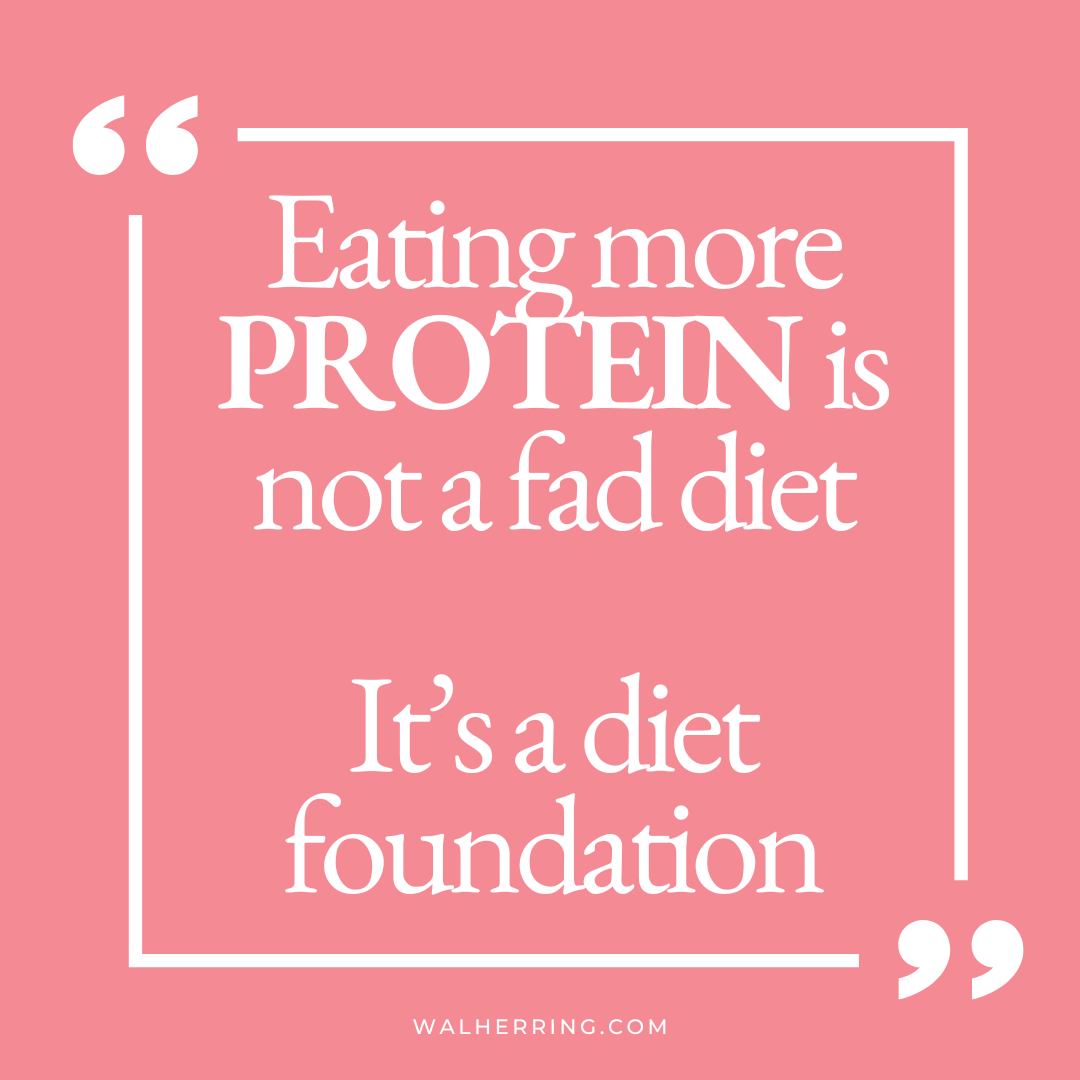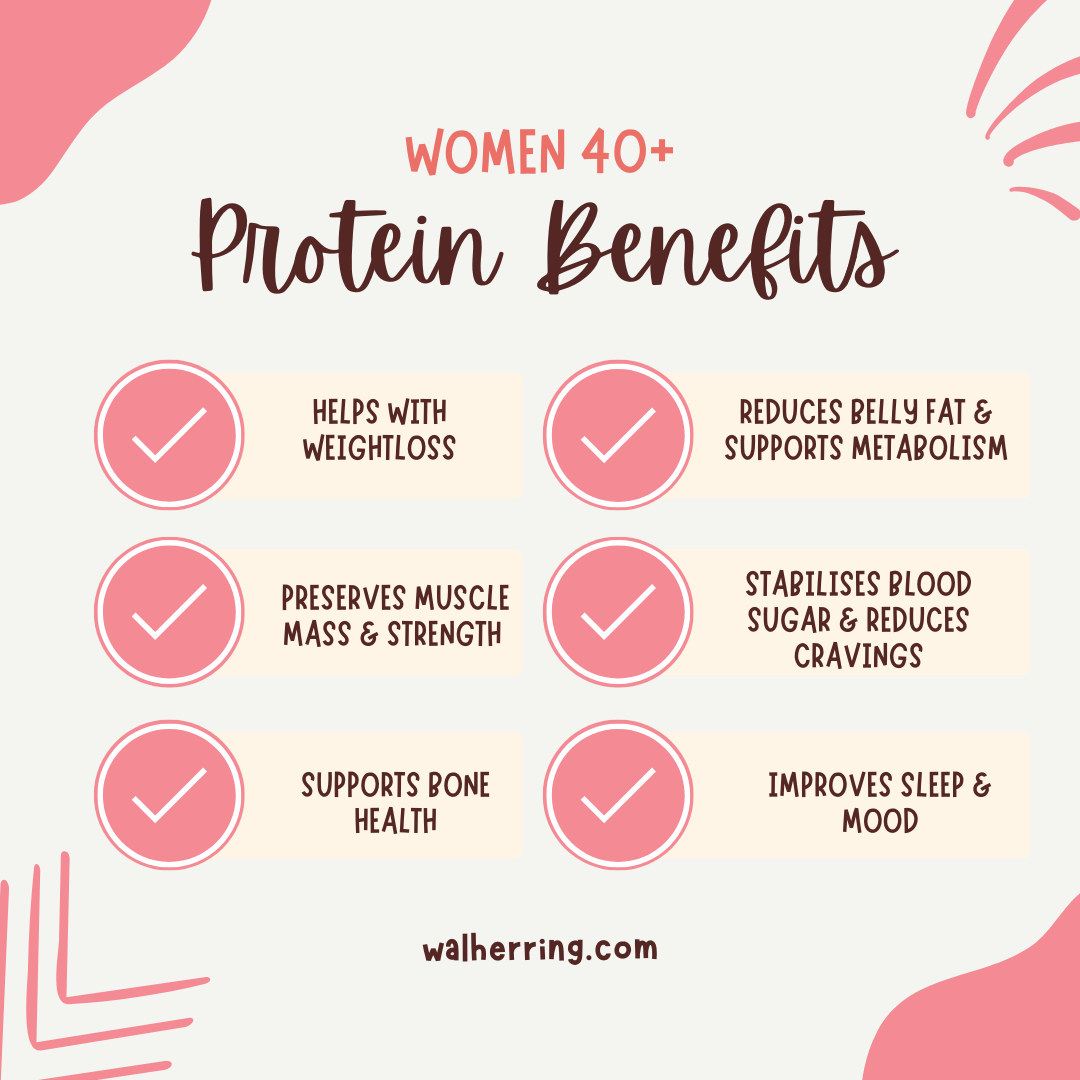Are You Eating Enough Protein? Here’s Why It Matters More Than Ever After 40

The wellness world loves a trend.
But the recent sport light on protein isn’t one of them.
Protein isn’t just for bodybuilders.
It’s essential, especially for women in midlife.
If you’ve noticed your energy dipping, your body changing, or your appetite playing tricks on you… protein might be the missing link.
What’s really going on?
As we age, our body’s ability to build and maintain muscle slows down.
This is called anabolic resistance.
Think of your body like a house.
When you were younger, your body was constantly repairing itself with a steady crew and a generous supply of building materials.
Now, the crew has shrunk, and the delivery trucks are slower.
You need more high-quality materials to keep the structure strong.
Protein is those building materials.
Without enough, your house starts to weaken. And you feel it — in your muscles, your mood, and your metabolism.

What the research shows:
Even a small increase in dietary protein - just 1 to 3% more of your daily energy intake, can have a huge impact on how you feel and function.
1: Helps prevent midlife weight gain
Muscle is your metabolism’s engine. Protein helps you hold onto it.
2: Eases hormonal shifts
Protein supports blood sugar stability something oestrogen usually manages.
3: Boosts sleep and mood
Tryptophan, found in protein, is a precursor to serotonin and melatonin - your calming and sleep hormones.
4: Reduces cravings
Protein keeps you fuller, longer. Less grazing. More stability.
5: Supports muscle and strength
No need to bulk. Just maintaining lean mass helps with posture, balance, and everyday strength.
6: Protects your bones
Protein is not the villain. In fact, it supports bone density - especially when combined with calcium and vitamin D.

Here’s the part most women miss
It’s not just about how much protein you eat.
It’s when you eat it.
Most women eat enough at dinner, but breakfast and lunch fall short.
Your body thrives on consistent intake — ideally 25 to 35 grams per meal.
That might look like:
-
Eggs and cottage cheese at breakfast
-
Chicken and lentils at lunch
-
Salmon with greens and sweet potato at dinner
Even adding a scoop of clean protein powder to your smoothie can tip the balance.
Try this for the next 30 days:
Start checking in with your plate:
-
Is there a quality protein source at each meal?
-
Are you eating enough to feel satisfied for 3 to 4 hours?
-
Do your cravings change when your meals are protein-rich?
You don’t need to overhaul everything.
Just start noticing. Tiny shifts often create the biggest gains.
Final note: Start here - not with supplements or fads
If you’ve been thinking of trying magnesium, collagen, or adaptogens… pause.
Before you spend a cent, get your protein sorted.
This is the first and most powerful change you can make.
Protein is the foundation.
It impacts your energy, sleep, cravings, metabolism, and resilience.
And when you get this right, everything else becomes easier.
I’m all about small changes with big rewards.
Protein is one of the biggest.
Want a simple way to get started?
Grab my 1.2.3 Meals Guide - a fool to help you build balanced, protein-rich meals in minutes.
It’s practical, satisfying, and designed with your midlife body in mind.
Want a Meal Framework that Works with Your Middlife Body?
1.2.3 Meal Guide for Women is designed to help you build balanced, satisfying meals that support your energy, hormones, and metabolism, without overthinking or tracking every bite.



